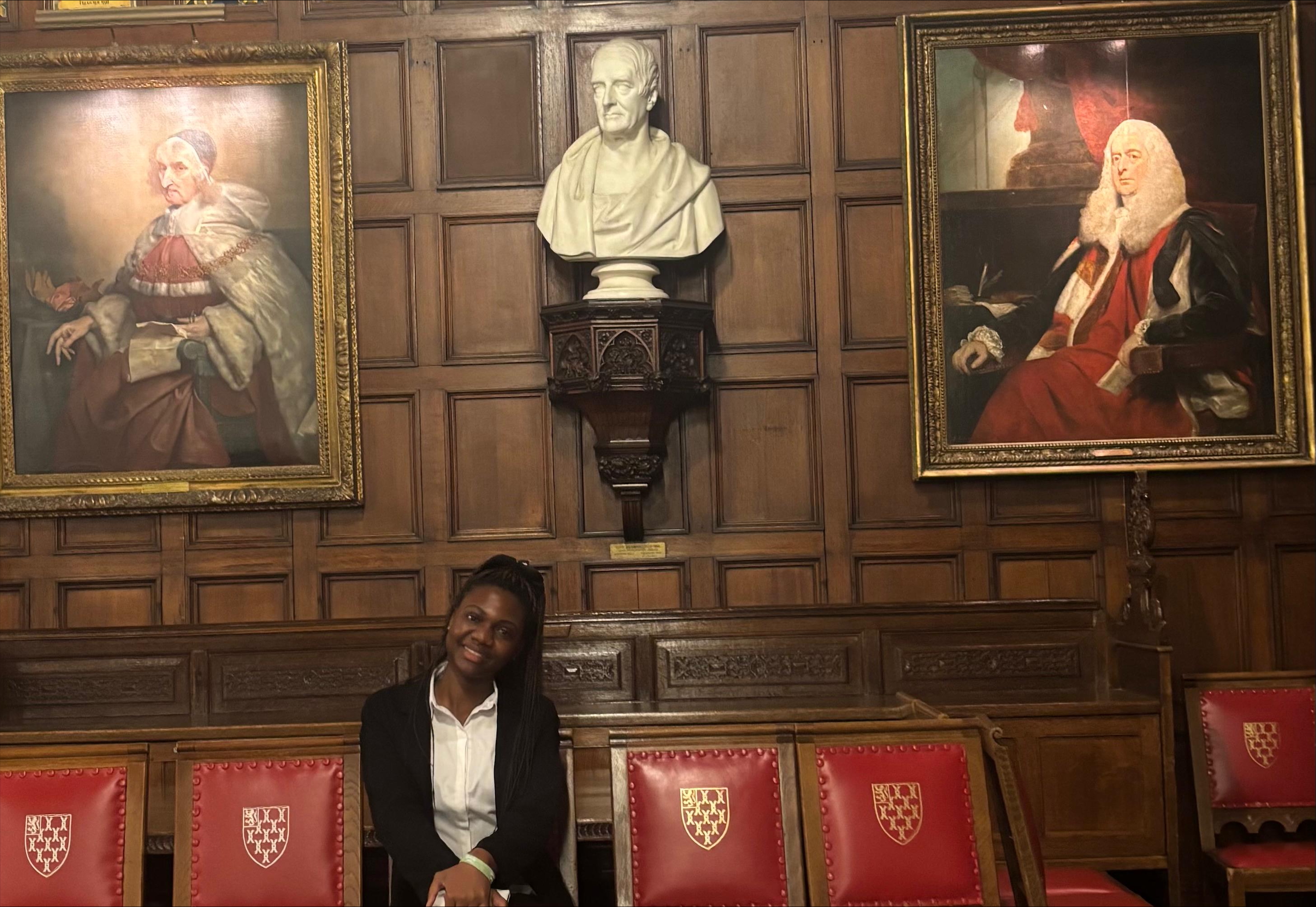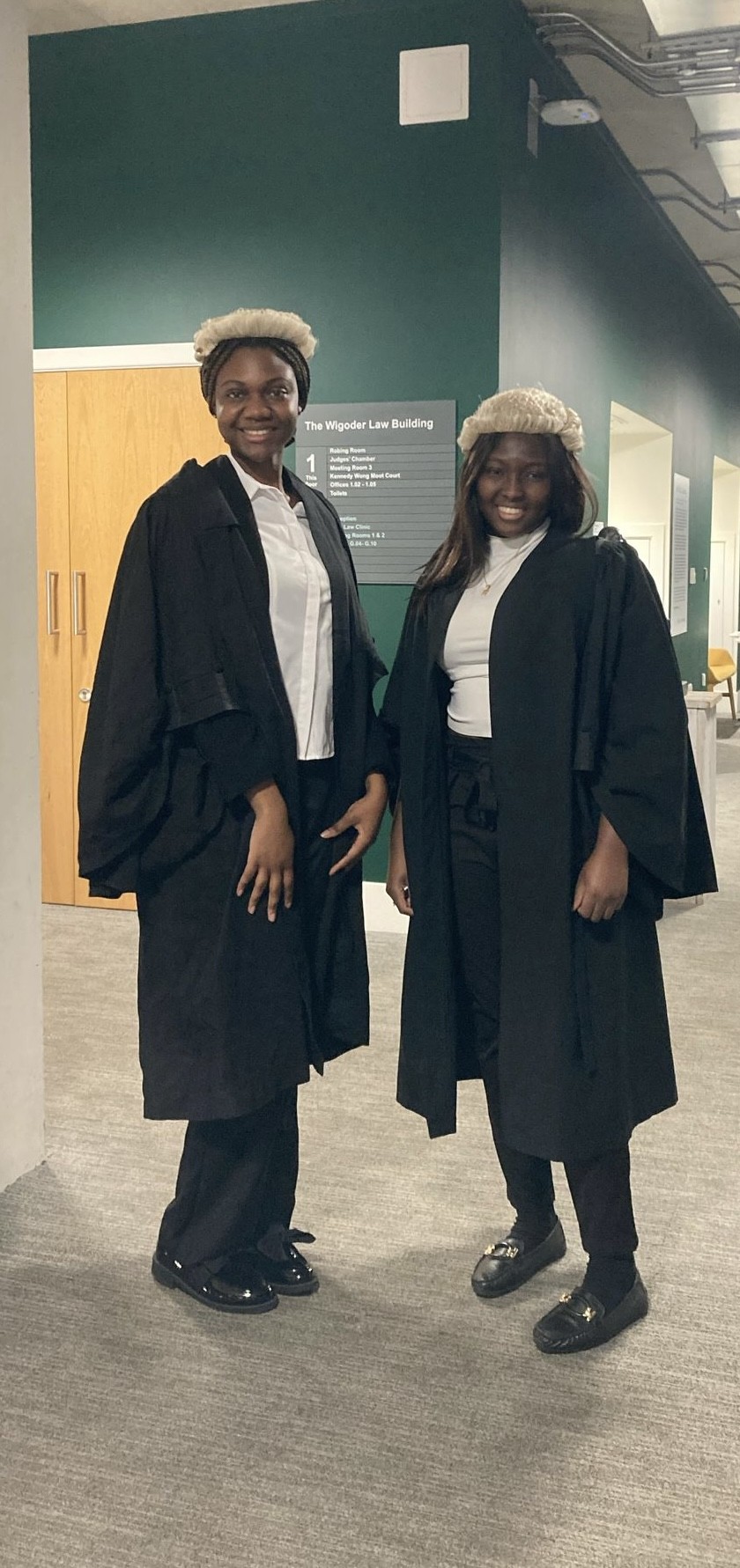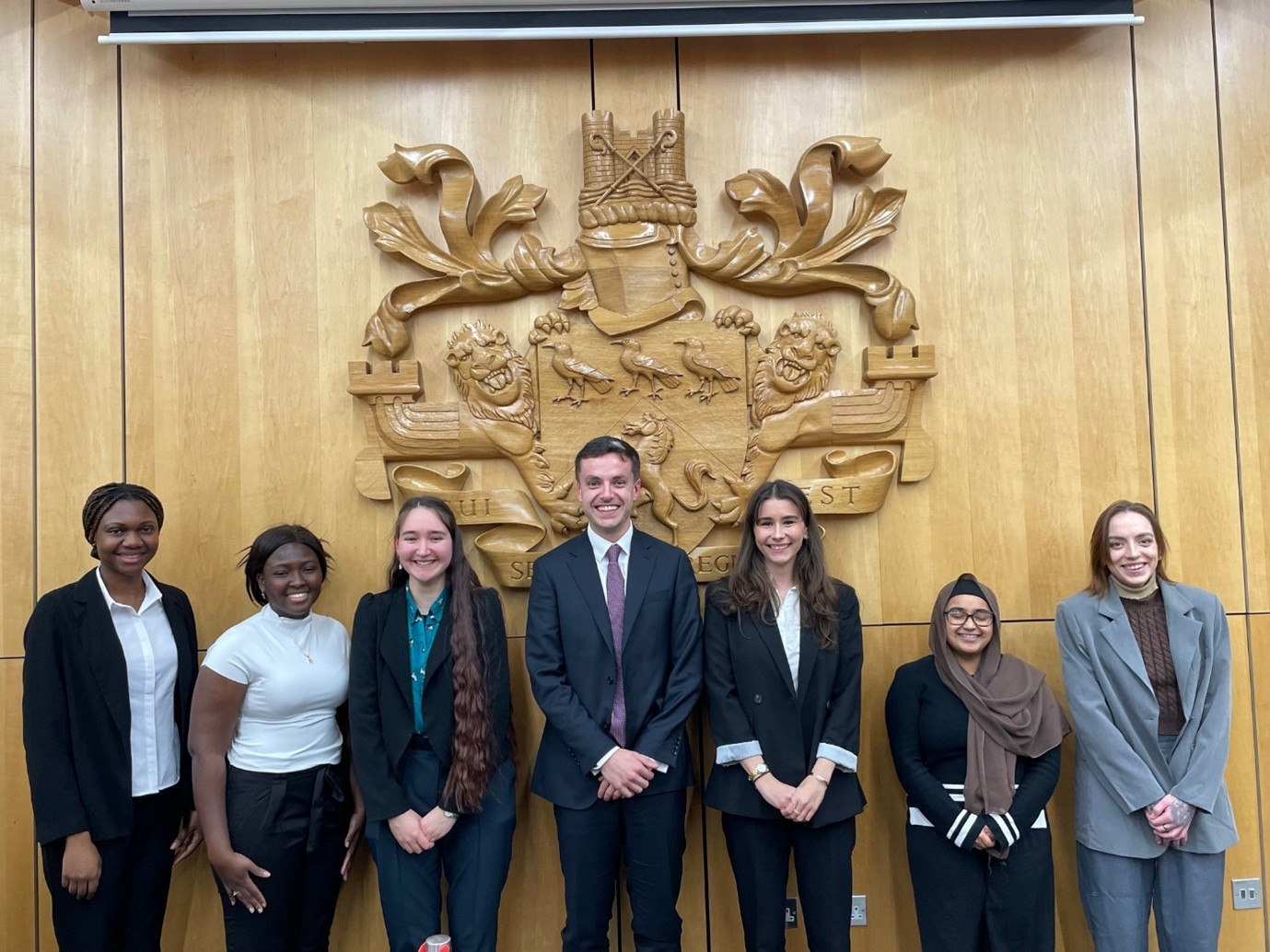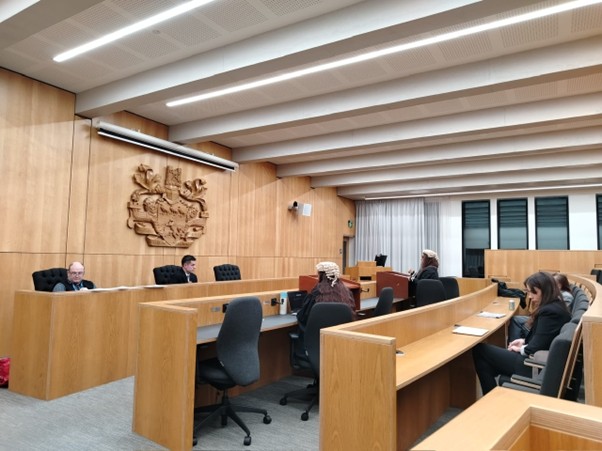As part of the lawyering skills opportunities available to students at Kent Law School, Director of Lawyering Skills, Darren Weir, facilitates competitions open to all in family, criminal and civil advocacy. The civil law advocacy competition was held recently and sponsored by eminent barristers’ chambers, 42 BR, London. Six law students reached the finals, ranging from a first year undergraduate Law LLB student to a postgraduate Law LLM student. The standard was so high that the judges jointly crowned two undergraduate law students as the winners: Lucy and Ella.
Some of the law student participants share their reflections on the experience below:
 “My name is Lucy Shinn, I am in my third year at Kent Law School.
“My name is Lucy Shinn, I am in my third year at Kent Law School.
After completing my law degree at Kent, I am very excited to be starting the Barrister Training Course at Nottingham in September this year. Therefore, I was extremely interested in the civil advocacy competition, as it was an opportunity to not only practise my advocacy skills but also receive personalised feedback from the judges to help me progress for my next stage of studies. I was so pleased to have won the competition. This has really given me a boost to believe that I can become a successful barrister in the future.
To enter this competition, we were all required to submit a skeleton argument in which we laid out our arguments in the appropriate format. I had not completed a skeleton argument before and therefore the opportunity to learn quickly was challenging but has allowed me to be more experienced in the submissions I have completed since.
For the first round, we split into pairs and each had the chance to represent both sides of the case. This was something that was quite challenging as often the points of each the appellant/ respondent were entirely contradictory for each submission. This did however show me that to develop a good argument, it is vital to consider the other side’s point of view and how you can encompass that into your own argument to sway the judgment in your favour. I learnt a lot during the first round, particularly the need for ample preparation to be able to direct the judge and answer their questions accurately.
Going into the final I was incredibly nervous. It was the first time I’d had the opportunity to wear a wig and gown and whilst this was incredibly exciting it made it feel all the more real! During my time in front of the judge I felt more comfortable than I thought I would have done and enjoyed the pressure of being asked questions. This allowed for a discussion on my appeal and ensured understanding between both myself and the judge.
As I was in the first pair to stand before the judge, I had the pleasure of watching my fellow competitors have their turns in the final. I found this incredibly useful, seeing how each advocate guided the case in slightly different directions, with different advocacy styles. I found myself taking note of different aspects from each person to take with me in the future, in order to further develop my own personal style of advocacy.
I was very pleased to have won the competition and be awarded the mini-pupillage opportunity. These opportunities are incredibly difficult to get and so this competition has given me the opportunity to be able to complete this work experience. This will help my future in terms of giving me the opportunity to make connections at 42 BR and gain experience in this area of the legal system. I really look forward to learning from them during my time there and experiencing real-life law.”
 “My name is Ella ten Doeschate and I am in my third year studying LLB (Hons) Law with a language (German). I will be studying the LLM (solicitors practice) next year.
“My name is Ella ten Doeschate and I am in my third year studying LLB (Hons) Law with a language (German). I will be studying the LLM (solicitors practice) next year.
I chose to enter this competition because I had participated in the family law advocacy competition, sponsored by Becket Chambers, and really enjoyed that experience.
We had two rounds, both of which required us to write a skeleton argument. The first round was an application to set aside a default judgment relating to a breach of contract, and we had to prepare a skeleton argument for both sides. We then argued the side that was chosen for us, with interventions from the judge throughout. The second round consisted of an appeal to the court of appeal, which was centred on the tort of negligence, whether expert evidence was required in the judgment and whether the defendant had caused the harm. This round took place in the moot court, with one person per side. We had 15 minutes to put forward our side of the appeal, again with interventions throughout.
I gained a greater sense of confidence in my ability to conduct and present legal research, as well as make good arguments. As I was successful in winning the competition, I also gained a mini pupillage with 42BR barristers, an opportunity which I am incredibly grateful for. Aside from the legal opportunities, though, it also allowed myself and the other mooters to foster a sense of community through conversations and help given to one another before and after the moot.
The overall experience was great, I really enjoyed being able to showcase my research and argue my submissions in a structured format and engage with legal problems in a realistic setting. The experience of the final was initially quite nerve wracking, but once we got into actually putting our arguments forward, the nerves subsided a little. I found that the judicial interventions were the hardest thing to deal with, as you have to think about an answer extremely quickly and maintain confidence in that answer.
The experience of dealing with judicial interventions and being able to hold yourself in a confident manner is something that is invaluable. Additionally, the practical experience of a mini pupillage is something which will greatly increase my personal understanding of legal practice.”
 “I am Ewuradjwoa Nhyira Walker, currently in my first year studying law here at the University of Kent. I am Ghanaian and I completed my secondary education in Ghana.
“I am Ewuradjwoa Nhyira Walker, currently in my first year studying law here at the University of Kent. I am Ghanaian and I completed my secondary education in Ghana.
As an aspiring barrister, I participated in this competition to gain hands-on experience on the nitty-gritty requirements to be a barrister. I saw the competition as a challenging but invaluable opportunity to push myself outside my comfort zone as well as to develop practical courtroom skills.
I improved my public speaking and courtroom skills. I also built my self-confidence as I had to face tough questions under pressure and deliver arguments in front of barristers. The competition really bridged the gap between theory and practice. I learned how to apply legal principles in a real-life simulated setting. It was an extremely wonderful experience meeting barristers, and fellow students passionate about advocacy.
Being in the final was thrilling and nerve-wracking in equal measure! The pressure was definitely amplified, knowing we were being judged at the highest level. It was indeed an unforgettable experience presenting my arguments in a courtroom setting, against talented opponents. Regardless of the outcome, reaching the final felt like a victory in itself. This competition has been transformative for my career aspirations. It solidified my passion to be a barrister.
For any student considering entering an advocacy competition – just do it! Don’t be intimidated if you feel unsure. The learning process itself is incredibly valuable, and the skills you gain are transferable to so many aspects of your life, both professionally and personally. It is not just about winning; it is about growth, challenging yourself, and discovering your potential. The journey to the final was intense, but the rewards – both in terms of skills and personal development – have been absolutely immense. It is an experience I will carry with me throughout my legal career.”
 “I am Malaika Benneh, a third year Law LLB student from Ghana. I came straight from secondary school in Ghana.
“I am Malaika Benneh, a third year Law LLB student from Ghana. I came straight from secondary school in Ghana.This not only gave me the opportunity to practice advocacy but it also led to me meeting new people. Networking forms a big part of the barrister profession so I am grateful. Always be willing to put yourself out there, because there is very little to lose.”
Senior lecturer Darren Weir explains that ‘our first instance hearing competitions provide students with a realistic opportunity to experience what day 1 advocacy might be like in practice. The civil advocacy competition has been running for several years and it would not be possible without sponsors like 43BR getting involved. We welcome any external partners who wish to facilitate experiences such as these in our lawyering skills programme. Congratulations to all students for having the courage to take part in such a unique opportunity. It is great to hear what impact it has had for all.’


